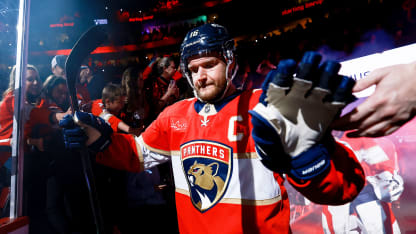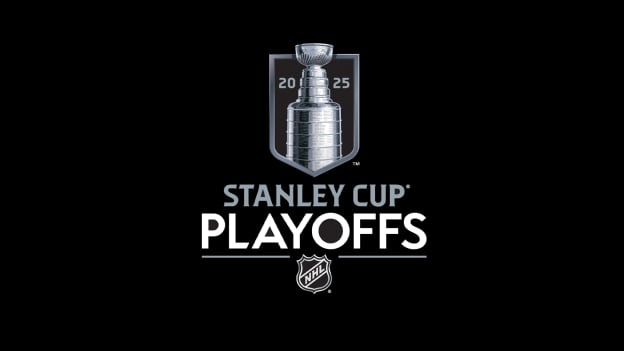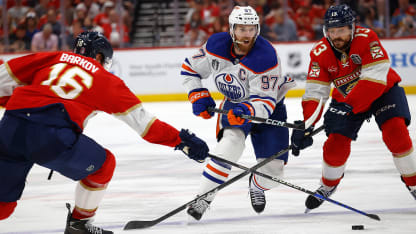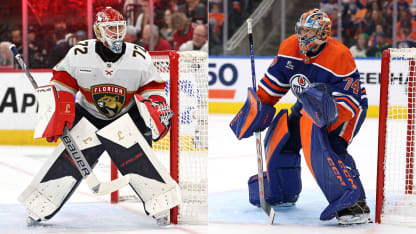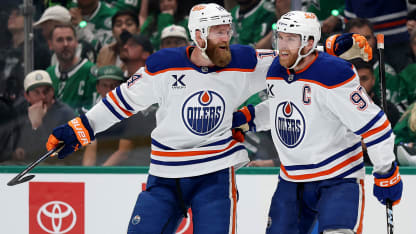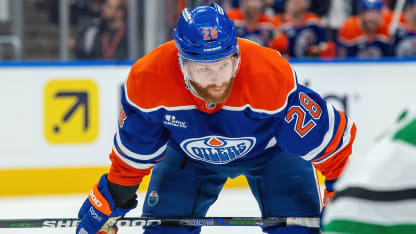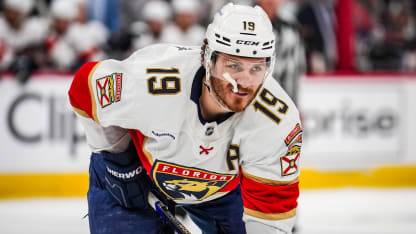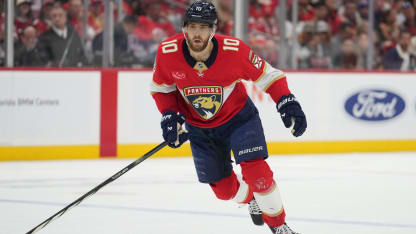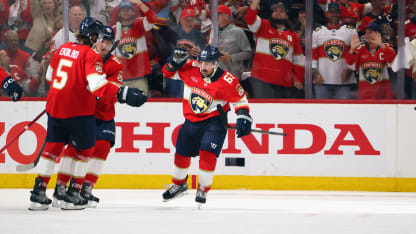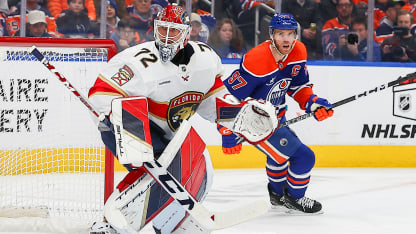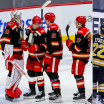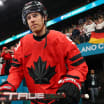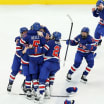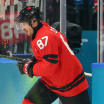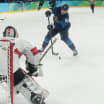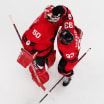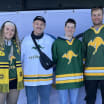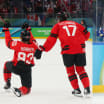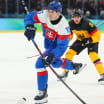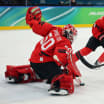Brad Marchand, who played under Chara’s leadership for 11 seasons before Bergeron took over and then Marchand himself, agreed.
“When 'Zee' would speak, it would hold a tremendous amount of weight because he wasn’t speaking all the time, so guys would really listen,” Marchand said. “Which is what 'Barky' does. He takes over in games and he seems to show up in the big moments and does all the right things and plays the proper way.
“And then when he uses his voice in the room or on the bench, it just carries a lot of weight and guys really hang on every word, and that was kind of how 'Zee' was.”
And although Barkov is, unequivocally himself, there are bits and pieces of others sprinkled in, including Jaromir Jagr, who arrived to the Panthers during the 2014-15 season, Barkov’s second in the NHL, and who demonstrated the work ethic the center would adopt.
“A lot. I took a lot,” Barkov said. “I don’t think I ever tried to wake up at 3 a.m. to go and work out. I don’t think I’ll be able to do that. But just the dedication and how much he loved hockey and how much he wanted to become better at age 42 or 43. I don’t know if it’s even possible, but he wanted to become better.”
Ultimately, though, the reason Barkov is here, on this team, in this sport, is his father, Alexander. Alexander Barkov played hockey for many years, starting with SKA Novosibirsk in Russia before moving to Italy and then Finland and Tappara, where he played for 10 seasons before retiring and starting to coach juniors.
It was in Finland that his son was born, in a place where the outdoor rinks are a quick walk away, available as soon as winter fell. And in Finland, winter comes early, a season that spans November to April.
“He was always there for me. He was at my practices, outdoor rinks whenever I went,” Barkov said. “He’s a huge part of where I am right now.”
He had spent his younger years in those locker rooms, in those hallowed spaces, learning.
“I probably just fell in love with hockey more and more,” Barkov said. “That’s the thing, you know every single player. The more you know about hockey, the more you love hockey. I knew every single player that played for that team, for the League, in the League.”
His father’s current team, JHC Spartak (Moscow), won the MHL championship last month, going up 3-0 in their best-of-7 series before watching their opponent, SKA-1946 (St. Petersburg) come back to force a Game 7. Just like the Oilers did last season.
And just like the Panthers did in 2024, JHC Spartak held on to win.
“The exact same as us last year,” Barkov said. “I saw it coming, too. Because he said they’re up 3-0 and he was like, the other team is so, so good, they’re playing so well. … I just saw it coming. They’re so nervous and the other team has nothing to lose. But then, I knew at 3-3, it’s going to even up. Now the other team has the little nerves, too. Then, Game 7, anyone can win.”
It’s what Barkov hopes to do again this season, though perhaps without the drama. It’s what he had been dreaming about since he arrived in the NHL, since he became captain, since he started creating the environment that he wanted to play in.
Since his belief in being himself allowed everyone else to believe it, too.
Still, though, there are limits.
He is asked, if he doesn’t get up at 3 a.m. like Jagr, what time does he get up. And there it is, amidst the understated way he talks, the way he deflects praise and attention, that wickedly funny side that Maurice mentioned. The way he can make his few words count.
“Seven? Eight?” Barkov hazards. “I am a normal human being, yeah.”
